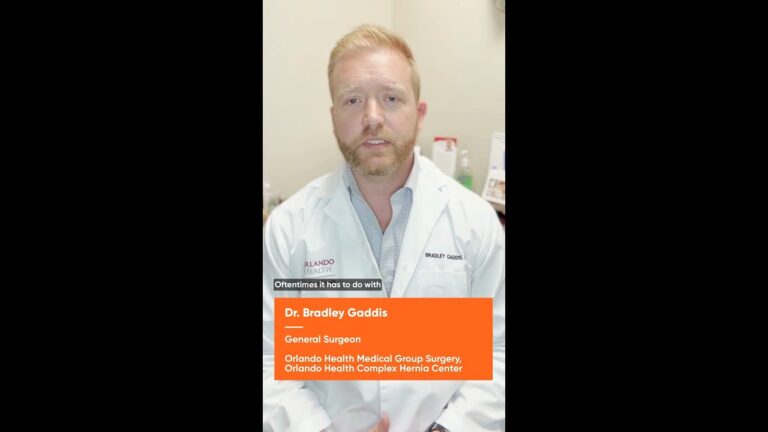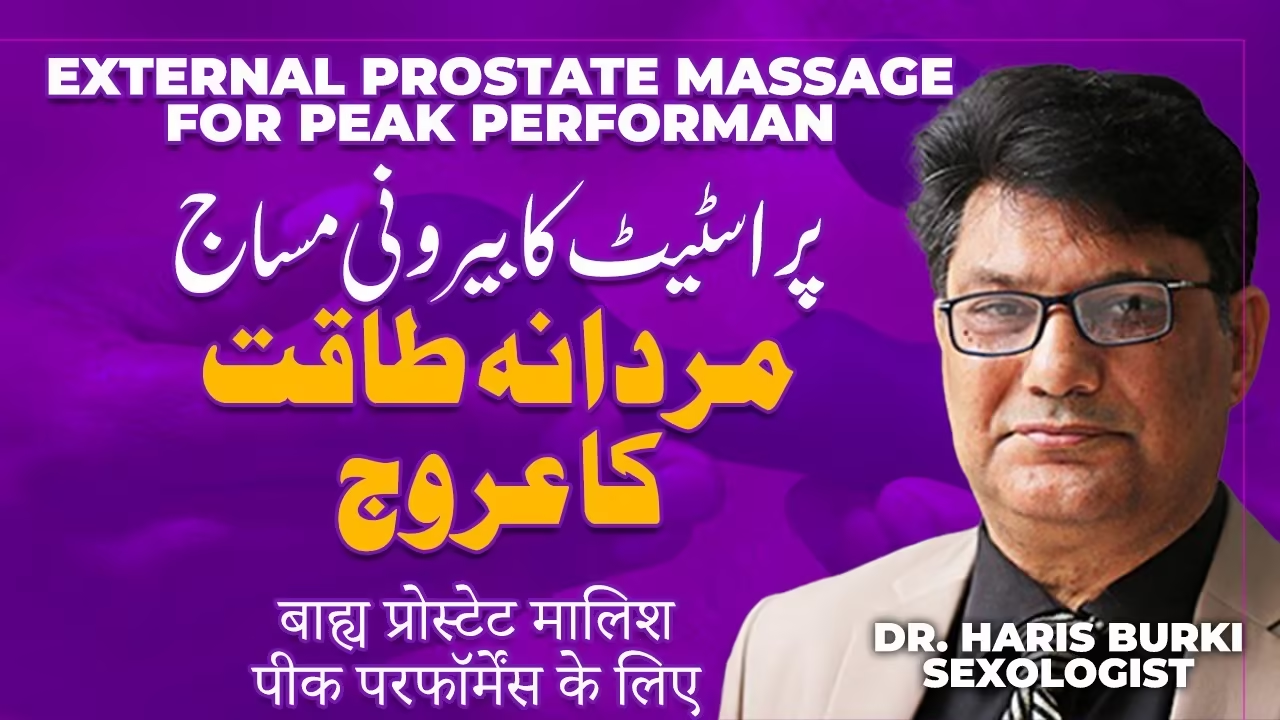
The Remarkable Benefits of Taking Olive Oil Daily on an Empty Stomach
Taking Olive Oil Daily, a cornerstone of the Mediterranean diet, has been revered for centuries not just for its culinary versatility but also for its numerous health benefits. In recent years, the practice of consuming olive oil on an empty stomach has gained popularity among health enthusiasts and nutritionists alike. This article explores the multitude of benefits that this simple daily habit can offer, from improving digestive health to enhancing brain function and beyond.
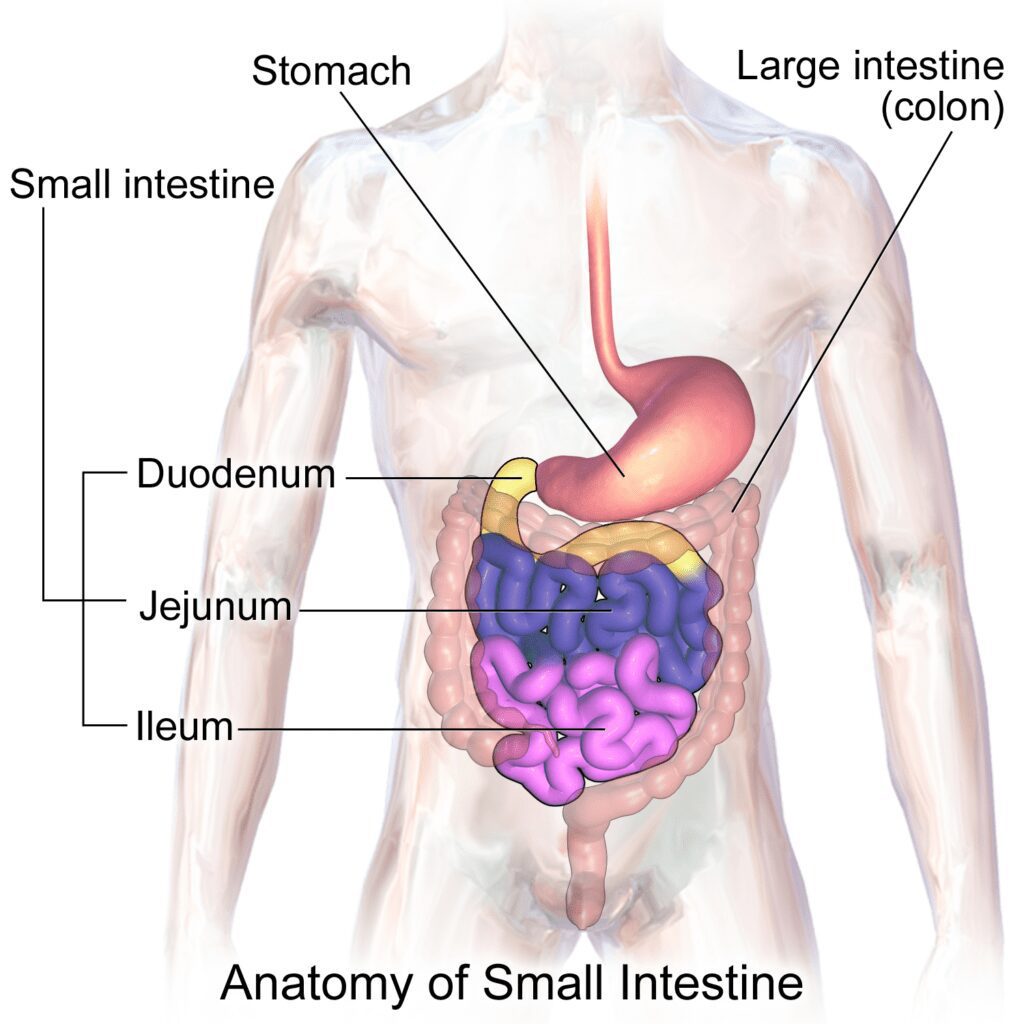
1. May Aid Digestion
Olive oil consumption, especially on an empty stomach, is often touted for its potential digestive benefits. While some of these claims are supported by scientific evidence, others remain anecdotal.
Stimulation of Bile Production
One of the primary ways olive oil may aid digestion is through its effect on bile production. Bile, produced by the liver and stored in the gallbladder, plays a crucial role in the digestion of fats.
When consumed on an empty stomach, olive oil can stimulate the release of bile from the gallbladder. This increased bile production may help to emulsify fats in subsequent meals, potentially improving overall digestion. However, it’s important to note that for individuals with gallbladder issues, this increased stimulation could potentially exacerbate symptoms.
Promotion of Gastric Motility
Some studies suggest that olive oil may help promote gastric motility, which is the movement of food through the digestive tract. This could potentially help alleviate symptoms of slow digestion or bloating.
A small amount of olive oil consumed on an empty stomach might help to ‘lubricate’ the digestive system, preparing it for the day’s meals. However, more research is needed to fully understand this effect and its potential benefits.
“Join Our Mailing List and Instantly Access Your Free Health Guide!”
Potential Prebiotic Effects
Olive oil contains compounds that may have prebiotic effects, meaning they could help support the growth of beneficial gut bacteria. While most studies on this topic have focused on the overall Mediterranean diet rather than olive oil consumption alone, it’s possible that regular olive oil intake could contribute to a healthier gut microbiome.
It’s worth noting, however, that these potential prebiotic effects are not necessarily enhanced by consuming olive oil on an empty stomach versus as part of a meal.
2. Possible Mild Laxative Effect
Another commonly cited benefit of consuming olive oil on an empty stomach is its potential mild laxative effect. This property could be beneficial for individuals dealing with occasional constipation or seeking to promote regular bowel movements.
Lubricating the Digestive Tract
Olive oil, being a fat, can help lubricate the intestines. When consumed on an empty stomach, this lubricating effect may be more pronounced, potentially easing the passage of stool through the digestive system.
This effect is largely mechanical – the oil simply helps things move more smoothly through the intestines. For some people, this could lead to easier and more regular bowel movements.
Stimulating Intestinal Contractions
Some studies suggest that olive oil may stimulate intestinal contractions, known as peristalsis. These contractions are crucial for moving food and waste through the digestive system.
By consuming olive oil on an empty stomach, you may be able to kickstart these contractions, potentially promoting more regular bowel movements throughout the day. However, it’s important to note that individual responses can vary significantly.
Potential for Overuse
While the mild laxative effect of olive oil can be beneficial for some, it’s crucial not to overdo it. Consuming too much olive oil, especially on an empty stomach, can lead to diarrhea or excessive bowel movements.
Moreover, relying on olive oil as a laxative could potentially mask underlying digestive issues that should be addressed by a healthcare professional. It’s always best to maintain regularity through a balanced diet rich in fiber and adequate hydration.
3. Antioxidant Properties
One of the most well-established benefits of olive oil is its high content of antioxidants. These compounds play a crucial role in protecting our cells from damage caused by free radicals, which are unstable molecules that can contribute to various chronic diseases and accelerated aging.
Rich in Polyphenols
Olive oil, particularly extra virgin olive oil, is rich in polyphenols, a type of antioxidant compound. These polyphenols, including hydroxytyrosol and oleuropein, are potent free radical scavengers.
Consuming olive oil on an empty stomach might allow for better absorption of these polyphenols, as there are no other foods present to interfere with their uptake. However, it’s worth noting that these compounds are also effectively absorbed when olive oil is consumed as part of a meal.
Vitamin E Content
Another important antioxidant found in olive oil is vitamin E. This fat-soluble vitamin plays a crucial role in protecting cell membranes from oxidative damage.
When consumed on an empty stomach, the vitamin E in olive oil may be more readily absorbed by the body. However, as with polyphenols, vitamin E is also well-absorbed when olive oil is consumed with food.
Potential Systemic Benefits
The antioxidants in olive oil may offer systemic benefits, meaning they could potentially protect various tissues and organs throughout the body from oxidative stress. This could contribute to overall health and potentially reduce the risk of certain chronic diseases.
However, it’s crucial to remember that these benefits are best obtained through consistent, long-term consumption of olive oil as part of a balanced diet, rather than relying solely on taking it on an empty stomach.
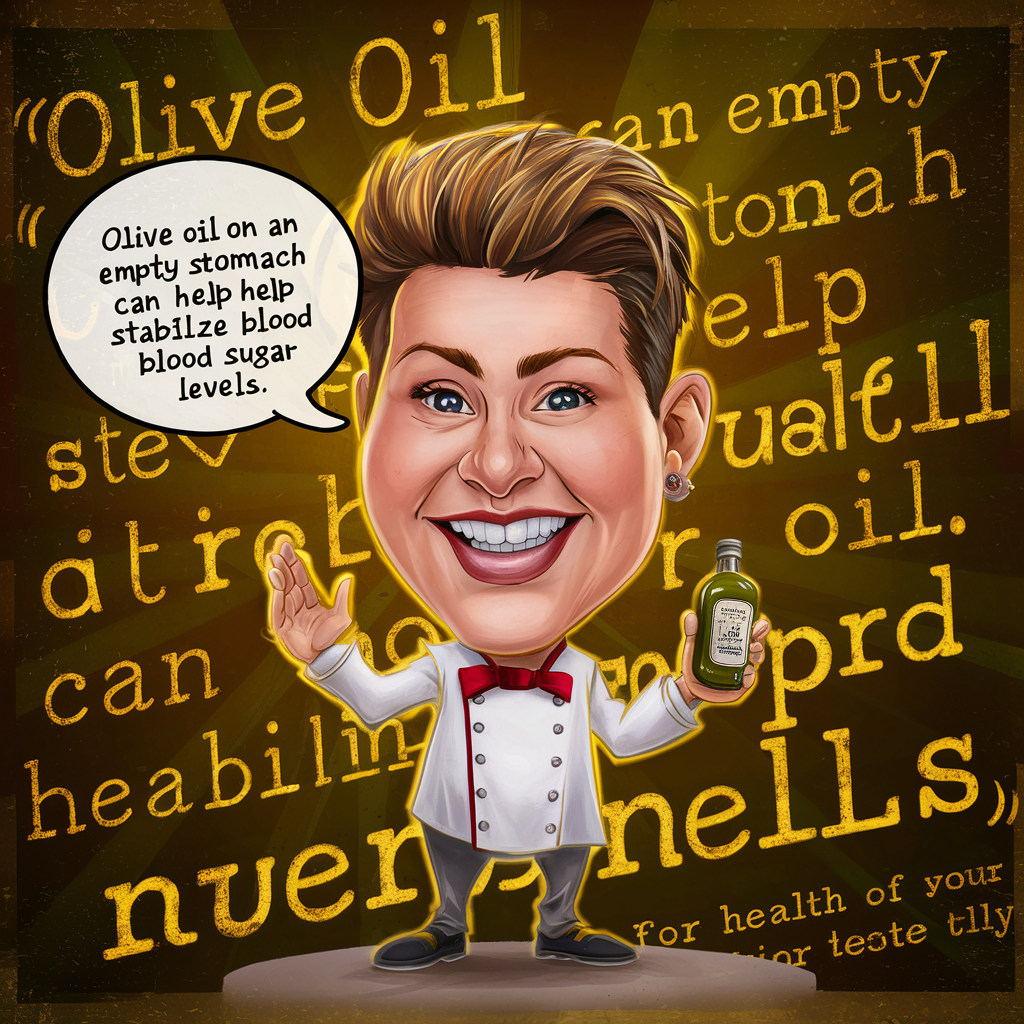
4. May Help Stabilize Blood Sugar
Some proponents of taking olive oil on an empty stomach claim that it can help stabilize blood sugar levels. While olive oil does have properties that could potentially influence blood sugar regulation, it’s important to approach these claims with caution and understand the underlying mechanisms.
Effect on Insulin Sensitivity
Research suggests that the monounsaturated fats found in olive oil may help improve insulin sensitivity. Insulin is the hormone responsible for regulating blood sugar levels, and improved sensitivity means that cells respond more effectively to insulin, potentially leading to better blood sugar control.
Consuming olive oil on an empty stomach might, in theory, provide these beneficial fats to the body when it’s most receptive. However, it’s important to note that most studies on this topic have looked at olive oil consumption as part of a balanced diet, not specifically on an empty stomach.
Potential Impact on Glycemic Index
Some studies have shown that adding olive oil to carbohydrate-rich meals can help lower the overall glycemic index of the meal. This means that the rise in blood sugar after eating is more gradual and controlled.
While this effect is typically observed when olive oil is consumed with food, some argue that taking it on an empty stomach could “prime” the digestive system to better handle carbohydrates consumed later in the day. However, this theory requires more research to be substantiated.
Not a Substitute for Proper Diabetes Management
It’s crucial to emphasize that while olive oil may have some beneficial effects on blood sugar regulation, it is not a substitute for proper diabetes management. People with diabetes should not rely on olive oil consumption, whether on an empty stomach or otherwise, as a primary method of controlling their blood sugar levels.
Always consult with a healthcare provider or a registered dietitian for personalized advice on managing blood sugar levels and incorporating olive oil into a diabetic diet.
5. Potential Anti-Inflammatory Effects
Olive oil is well-known for its anti-inflammatory properties, which are largely attributed to its content of oleic acid and various phenolic compounds. While these properties are beneficial regardless of when olive oil is consumed, some argue that taking it on an empty stomach could enhance these effects.
Oleocanthal: Nature’s Ibuprofen
One of the most notable anti-inflammatory compounds in olive oil is oleocanthal. This phenolic compound has been shown to have similar anti-inflammatory effects to ibuprofen, albeit at much lower concentrations.
Consuming olive oil on an empty stomach might allow for more direct absorption of oleocanthal, potentially maximizing its anti-inflammatory effects. However, it’s important to note that the concentration of oleocanthal can vary significantly between different olive oils.
Modulation of Inflammatory Markers
Regular consumption of olive oil has been associated with reductions in various inflammatory markers in the body. These include C-reactive protein (CRP), interleukin-6 (IL-6), and tumor necrosis factor alpha (TNF-α).
While these effects have been observed with regular olive oil consumption as part of a balanced diet, some proponents argue that taking olive oil on an empty stomach could enhance these anti-inflammatory effects. However, more research is needed to confirm whether the timing of olive oil consumption significantly impacts its anti-inflammatory properties.
Potential Benefits for Inflammatory Conditions
Given its anti-inflammatory properties, olive oil consumption has been studied in relation to various inflammatory conditions, including rheumatoid arthritis, inflammatory bowel disease, and even certain types of cancer.
While the results of these studies are promising, it’s important to remember that olive oil is not a cure-all. Its anti-inflammatory effects are best realized as part of an overall anti-inflammatory diet and lifestyle, rather than relying solely on taking it on an empty stomach.
6. Could Promote Satiety
One of the potential benefits often associated with consuming olive oil on an empty stomach is its ability to promote satiety, or the feeling of fullness. This could potentially lead to reduced overall calorie intake throughout the day. However, it’s important to examine this claim critically and understand the underlying mechanisms.
Fat Content and Hormone Regulation
Olive oil is predominantly composed of fats, specifically monounsaturated fats. When consumed, these fats can trigger the release of hormones that signal fullness to the brain, such as cholecystokinin (CCK) and peptide YY (PYY).
Taking olive oil on an empty stomach might lead to a more pronounced release of these hormones, potentially leading to a stronger feeling of satiety. However, it’s worth noting that this effect is likely to be temporary and may not significantly impact overall daily calorie intake.
Slow Gastric Emptying
Fats, including those found in olive oil, can slow down gastric emptying – the rate at which food leaves the stomach. This slower emptying can contribute to feeling full for a longer period.
Consuming olive oil on an empty stomach might enhance this effect, potentially leading to reduced hunger throughout the morning. However, individual responses can vary, and some people might find that consuming fats on an empty stomach leads to digestive discomfort.
Potential Impact on Subsequent Meals
Some proponents argue that taking olive oil on an empty stomach could lead to reduced calorie intake at subsequent meals. The theory is that the initial feeling of fullness might persist, leading to smaller portion sizes later in the day.
While this is an interesting hypothesis, more research is needed to confirm whether this effect is significant and consistent across individuals. It’s also important to consider that olive oil itself is calorie-dense, so any potential reduction in subsequent calorie intake needs to be balanced against the calories consumed from the oil itself.
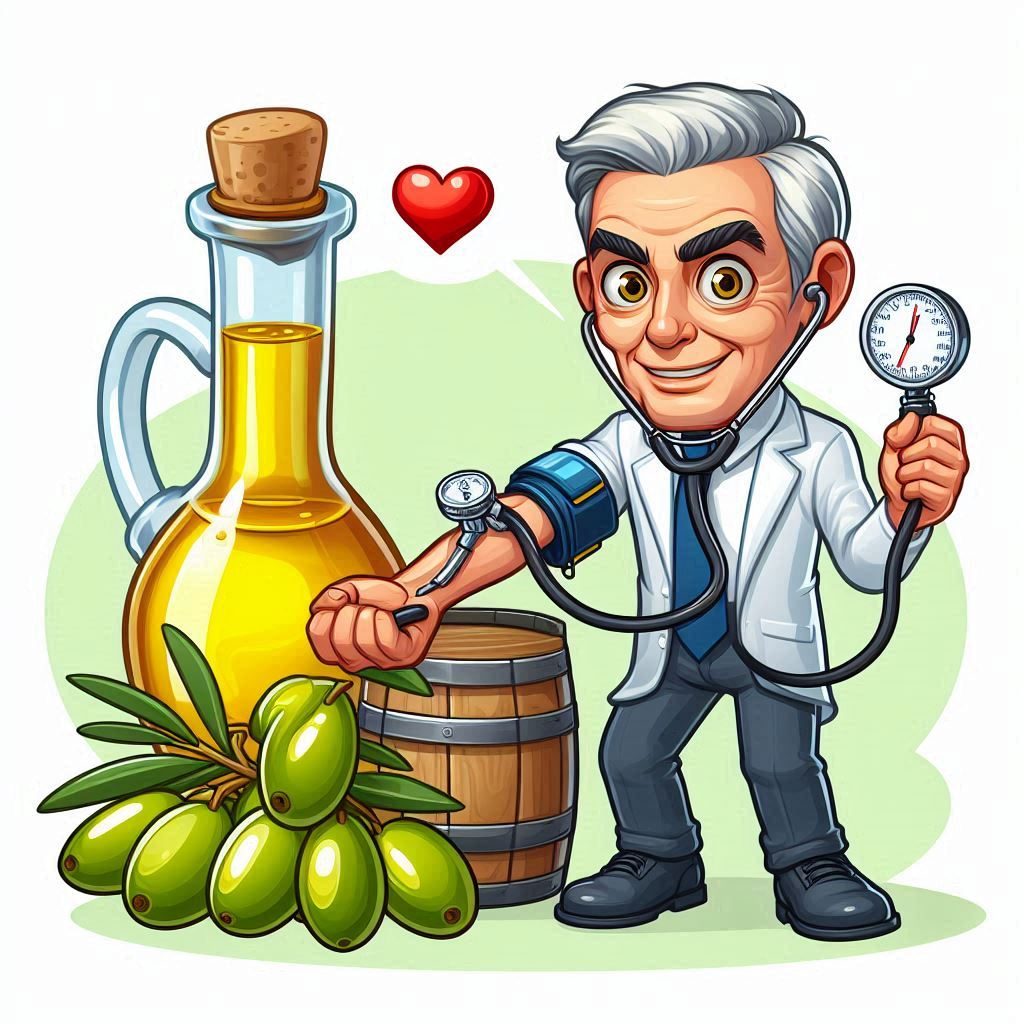
7. May Support Heart Health (Indirectly)
Olive oil has long been associated with heart health, particularly as a key component of the Mediterranean diet. While these benefits are well-established, it’s important to understand that they are not necessarily enhanced by consuming olive oil on an empty stomach.
Improvement in Lipid Profile
Regular consumption of olive oil has been linked to improvements in lipid profiles, including increases in HDL (good) cholesterol and reductions in LDL (bad) cholesterol and triglycerides.
These effects are believed to be due to the high content of monounsaturated fats and polyphenols in olive oil. However, these benefits are observed with regular consumption as part of a balanced diet, rather than specifically from taking olive oil on an empty stomach.
Blood Pressure Regulation
Some studies have suggested that olive oil consumption may help in regulating blood pressure. This effect is thought to be due to the presence of polyphenols and the overall anti-inflammatory properties of olive oil.
While these effects contribute to heart health, they are not necessarily enhanced by consuming olive oil on an empty stomach. Consistent, long-term incorporation of olive oil into a heart-healthy diet is likely more beneficial than focusing on the timing of consumption.
Endothelial Function
Olive oil consumption has been associated with improvements in endothelial function, which refers to the health of the inner lining of blood vessels. Healthy endothelial function is crucial for cardiovascular health.
Again, while this benefit is well-established for olive oil consumption in general, there’s no strong evidence to suggest that taking olive oil on an empty stomach provides any additional benefit to endothelial function.

8. Anecdotally Linked to Improved Skin and Hair
Many people claim that consuming olive oil, particularly on an empty stomach, can lead to improvements in skin and hair health. While olive oil does contain nutrients that are beneficial for skin and hair, it’s important to approach these claims with a critical eye.
Vitamin E and Skin Health
Olive oil is a good source of vitamin E, a nutrient known for its antioxidant properties and potential benefits for skin health. Vitamin E may help protect the skin from oxidative damage and support skin healing.
While consuming olive oil can contribute to your overall vitamin E intake, it’s worth noting that these benefits are not exclusive to taking olive oil on an empty stomach. Moreover, topical application of vitamin E may be more directly beneficial for skin health than oral consumption.
Fatty Acids and Hair Health
The fatty acids in olive oil, particularly oleic acid, are sometimes credited with improving hair health and shine. These fatty acids can help nourish the hair and potentially reduce breakage.
However, while consuming olive oil can contribute to overall nutrient intake that supports hair health, direct application of olive oil to the hair is likely to have a more noticeable effect than oral consumption, regardless of whether it’s taken on an empty stomach or not.
Hydration and Skin Elasticity
Some people believe that consuming olive oil can help improve skin hydration and elasticity from the inside out. While staying well-hydrated and consuming a balanced diet rich in healthy fats can indeed support skin health, there’s no strong evidence to suggest that taking olive oil on an empty stomach provides any unique benefits in this regard.
9. Might Boost Energy Levels
Some individuals report feeling more energized after consuming olive oil on an empty stomach. While this effect is largely anecdotal and subjective, there are some potential mechanisms that could explain this perceived energy boost.
Sustained Energy Release
Olive oil is primarily composed of fats, which provide a more sustained release of energy compared to carbohydrates. When consumed on an empty stomach, this slow release of energy might contribute to a feeling of sustained vitality throughout the morning.
However, it’s important to note that individual responses can vary greatly. Some people might find that consuming fats on an empty stomach leads to feelings of heaviness or sluggishness rather than increased energy.
Potential Impact on Metabolism
Some studies suggest that the consumption of monounsaturated fats, like those found in olive oil, might have a mild positive effect on metabolism. This could potentially contribute to feelings of increased energy.
However, these effects are generally observed with long-term consumption as part of a balanced diet, rather than from taking olive oil on an empty stomach specifically.
Placebo Effect
It’s also worth considering the potential role of the placebo effect in reported energy boosts from consuming olive oil on an empty stomach. If an individual believes that this practice will increase their energy levels, they might indeed feel more energized due to this expectation.
While the placebo effect can be powerful, it’s important to rely on scientifically proven methods for maintaining energy levels, such as getting adequate sleep, staying hydrated, and eating a balanced diet.
10. Could Contribute to Nutrient Absorption
One potential benefit of consuming olive oil on an empty stomach is its ability to enhance the absorption of certain nutrients. This is particularly relevant for fat-soluble vitamins and other compounds that require dietary fat for optimal absorption.
Enhanced Absorption of Fat-Soluble Vitamins
Vitamins A, D, E, and K are fat-soluble, meaning they require the presence of dietary fat for optimal absorption in the body. Consuming olive oil on an empty stomach could potentially enhance the absorption of these vitamins from subsequent meals.
For example, if you consume olive oil in the morning and then eat a salad rich in vitamin K later in the day, the earlier olive oil consumption might help your body better absorb the vitamin K from the salad.
Improved Bioavailability of Certain Phytonutrients
Some plant compounds, known as phytonutrients, are also better absorbed in the presence of fats. These include carotenoids (like beta-carotene and lycopene) and some flavonoids.
Consuming olive oil on an empty stomach could potentially prime your digestive system to better absorb these beneficial compounds from the foods you eat throughout the day.
Considerations for Timing
While consuming olive oil can indeed enhance nutrient absorption, it’s worth noting that this benefit is not exclusive to taking it on an empty stomach. Including olive oil with meals that contain fat-soluble nutrients can be just as effective, if not more so, as the nutrients and the fat are present together in the digestive system.

11. Improves Nail Health
While not as commonly discussed as its potential benefits for skin and hair, some proponents claim that consuming olive oil, particularly on an empty stomach, can improve nail health. Let’s examine this claim and the potential mechanisms behind it.
Source of Essential Fatty Acids
Olive oil is rich in essential fatty acids, particularly oleic acid, which is a monounsaturated omega-9 fatty acid. These fatty acids are crucial for overall health, including the health of our nails.
Consuming olive oil regularly, whether on an empty stomach or as part of meals, can contribute to your intake of these essential fatty acids. This could potentially support nail strength and prevent brittleness.
Vitamin E for Nail Growth
As mentioned earlier, olive oil is a good source of vitamin E. This antioxidant vitamin is notonly beneficial for skin health but also plays a role in nail health. Adequate vitamin E intake can promote nail growth and prevent issues like dry, brittle nails.
By consuming olive oil, especially on an empty stomach where it may be more easily absorbed, you could be supporting your body’s vitamin E levels and potentially improving the health of your nails.
Hydration and Nail Health
Proper hydration is essential for overall nail health. Dehydration can lead to brittle nails that are prone to breakage. While olive oil itself does not hydrate the nails directly, staying hydrated by drinking water along with consuming healthy fats like olive oil can contribute to nail health from within.
Ensuring that your body is well-hydrated can complement the benefits of consuming olive oil for nail health, whether on an empty stomach or as part of your regular meals.
FAQs
1. What are the benefits of taking olive oil daily?
Taking olive oil daily can improve digestive health, enhance heart function, reduce inflammation, and support weight management.
2. How does olive oil improve digestion?
Olive oil stimulates digestive enzymes, promotes bile production, and acts as a lubricant in the digestive tract, aiding in regular bowel movements.
3. Can olive oil help with weight loss?
Yes, olive oil can increase feelings of fullness, boost metabolism, and regulate appetite, making it easier to manage weight.
4. Is it better to take olive oil on an empty stomach?
Consuming olive oil on an empty stomach allows for optimal absorption of its beneficial compounds, enhancing its health effects.
5. What makes olive oil heart-healthy?
Olive oil is rich in monounsaturated fats, which help lower bad cholesterol (LDL) levels while increasing good cholesterol (HDL), promoting overall heart health.
Conclusion
In conclusion, while there are various claims about the benefits of consuming olive oil on an empty stomach, it’s essential to approach these assertions with a critical eye. While olive oil does offer numerous health benefits, many of these advantages can be obtained through incorporating it into a balanced diet rather than specifically consuming it on an empty stomach.
From potential digestive benefits to antioxidant properties and support for heart health, olive oil can indeed be a valuable addition to your daily nutrition. However, individual responses may vary, and it’s crucial to consider factors like personal tolerance, calorie content, and the overall dietary context in which olive oil is consumed.
Before making any significant changes to your diet, especially regarding the consumption of specific foods like olive oil, it’s advisable to consult with a healthcare provider or a registered dietitian. They can provide personalized guidance based on your unique health needs and help you make informed decisions about incorporating olive oil or any other food into your daily routine.
While some anecdotal claims about consuming olive oil on an empty stomach may have merit, it’s important to prioritize evidence-based practices for optimal health and well-being. Whether you choose to enjoy olive oil on an empty stomach or as part of your meals, moderation and balance remain key principles in maintaining a healthy lifestyle.
Ultimately, the best approach to reaping the benefits of olive oil lies in its consistent inclusion in a diverse and nutrient-rich diet, rather than focusing solely on the timing of consumption. By savoring this Mediterranean staple in various culinary creations, you can not only enhance the flavor of your dishes but also nourish your body with its array of health-promoting nutrients.
So, whether drizzled over a fresh salad, used for cooking a flavorful stir-fry, or enjoyed on its own, let olive oil be a delicious and nutritious part of your daily routine, supporting your overall health and well-being with each delightful drop.
“Join Our Mailing List and Instantly Access Your Free Health Guide!”
Disclaimer: As an affiliate for many of the companies mentioned in this article, I may earn a commission from qualifying purchases. If you click on an affiliate link and make a purchase, I may receive a commission at no additional cost to you. Please note that I only recommend products I believe will provide value to my readers.
Check out the related articles below:
The information presented in this Article is provided for informational purposes only, it is not meant to substitute for medical advice or diagnosis provided by your physician or other medical professional. Do not use this information to diagnose, treat, or cure any illness or health condition. If you have, or suspect that you have a medical problem, contact your physician or health care provider.



